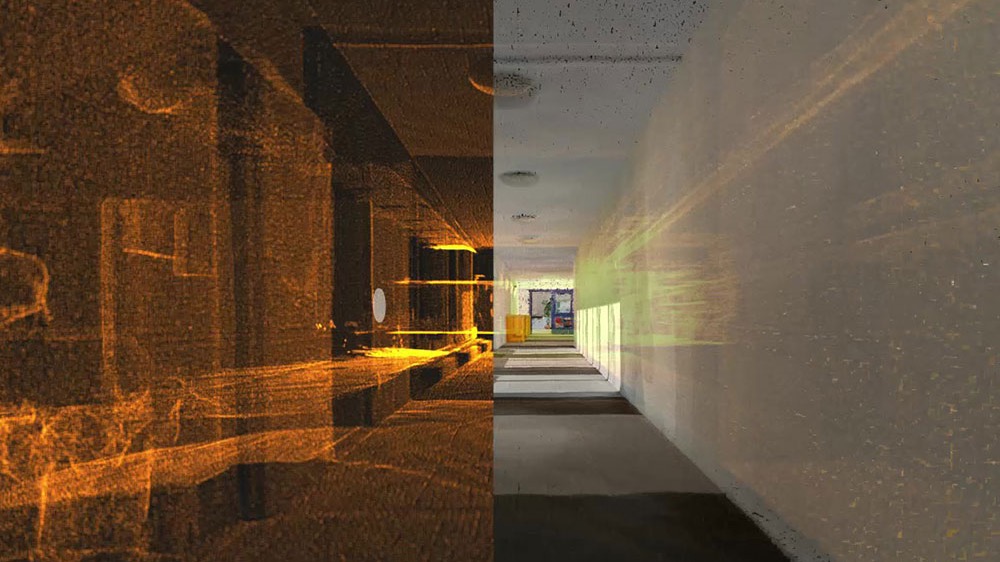The campus area in Gävle is currently undergoing an extensive 3D scan of all buildings. It is Akademiska Hus in collaboration with the University of Gävle who wants to create a digital twin of the campus. The goal is to achieve smarter space utilization by up to 20-30 percent, reduced energy use and new services that will make it both more fun and more attractive to be on campus.
Since the end of December, a digital scan has been carried out by the University of Gävle. In the first stage, this is an internal laser scan of all buildings, something that in total covers just over 60,000 m2. In a second phase, the outdoor environments will also be scanned with the help of drones to get a complete picture of the campus. In short, it can be said that the digital model that is created should then be supplemented with other data. In this way, a digital copy is obtained which, when connected to a network, becomes a so-called digital twin. The investment is part of Akademiska Hus' work to digitize its property portfolio and the possibilities with the new technology are many.
- The goal is to use today's buildings smarter with data and analyzes that the digital twin generates. Above all, we want to be able to evaluate whether we have the right size of premises and secure so that we use the existing property portfolio so well that in the future we do not have to build new ones. This is the most sustainable alternative and crucial for Akademiska Hus if we are to achieve our goal of climate neutrality, says Peter Karlsson, innovation leader at Akademiska Hus.
He continues:
- Just by gaining knowledge about how rooms are booked but no one shows up gives us the opportunity to increase usage by over 10 percent. When we then connect to building-related data and do more advanced analyzes on the digital copy, we will be able to help our customers use the existing buildings up to 20–30 percent better, at least.
Like a Google Street View
With the digital twin, the buildings at the University of Gävle will be able to be experienced virtually remotely, but also in a place where the physical space is joined and strengthened via AR technology in, for example, apps and telephones. Gemini generates smart and innovative solutions beyond the ordinary, including an "indoor Google Street View" where the ambition is that in the future it will be possible to move around the premises digitally, search for objects, find where the next lecture is held or where there are vacancies room. The digital twin will also make it possible for the buildings to be operated in even more energy-optimal ways and for it to be easier to detect when something in the premises is not working.
- Our ambition is to start experimenting and testing things in the digital twin in the next step to understand how we can even better create environments that everyone working at the University of Gävle really enjoys, says Peter Karlsson, innovation manager at Akademiska Hus.
- We are positive to Akademiska Hus' initiative. This technology can lead to it being easier to find on campus with the help of the Street View function, but also to us being able to work with and use our premises more efficiently, says Fredrika Nordahl Westin, local administrator at the University of Gävle.
The internal scan began on December 27, 2021 and is expected to be completed on January 14, 2022. The drone scan of the outdoor environments is scheduled to begin in the spring of 2022 at the earliest.
You can watch a movie about what a digital twin can look like here.
